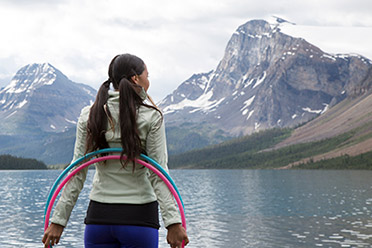
Truth and Reconciliation
Reflect on the history, legacy and impact of Residential Schools and the Calls to Action we must all take to repair the damage done

“Reconciliation is about establishing and maintaining a mutually respectful relationship between Indigenous and non-Indigenous peoples in this country. In order for that to happen, there has to be awareness of the past, an acknowledgement of the harm that has been inflicted, atonement for the causes, and action to change behaviour.”
– From the introduction to
Honouring the Truth, Reconciling for the Future: A Summary of the Final Report of the Truth and Reconciliation Commission of Canada,The Truth and Reconciliation Commission of Canada, 2015, pages 6-7.
A: The Truth and Reconciliation (TRC) was established 2008 as a result of the Indian Residential Schools Settlement Agreement. Its mandate is to inform all Canadians about what happened in Indian Residential Schools (IRS). The Commission documented the truth of survivors, families, communities and anyone personally affected by the IRS experience. The TRC published 94 calls to action across all sectors in Canada in its final report issued in 2015.
A: A system of boarding schools created across Canada in the 1870s, some established as early as the 1830s, and lasting until the last one closed in 1996, aimed at removing Indigenous children from the influence of their family, community, culture and heritage.
A: The largest class action settlement in Canadian history to date, the Indian Residential Schools Settlement Agreement (IRSSA) recognized the damage inflicted on Indigenous peoples by residential schools and established a multi-billion-dollar fund to help former students in their recovery
A: Reconciliation is ‘critical, continuous and the responsibility of every Canadian’. Reconciliation is not ‘a single gesture, blame or the loss of rights for non-Indigenous Canadians’.
A: The TRC recommendations for corporate Canada (call to action #92) includes the adoption of UNDRIP (the United Nations Declaration on the Rights of Indigenous Peoples) as a framework for reconciliation with a focus on education, employment and economic empowerment. Aligned to the TRC call to action, these three pillars represent BMO’s strategic focus and commitments to progress for Indigenous communities across Canada.
A: Learn more about the commitments BMO has made and progress against them on our Indigenous Commitments site.
A: Consider ways you can listen, learn, and take positive action to progress reconciliation. For example, you can learn more through the National Centre for Truth and Reconciliation. And you can get engaged with First Nations, Métis and Inuit in your local area. For example, look for opportunities to participate in events the celebrate and recognize National Indigenous History Month (June), National Indigenous Peoples Day (June 21) and the National Day for Truth and Reconciliation (September 30). If you live in the United States, seek opportunities to participate in events for Native American Heritage Month (November).

Reflect on the history, legacy and impact of Residential Schools and the Calls to Action we must all take to repair the damage done

Survivors from Residential Schools share their stories. Watch videos about the impacts of the Indian Act and Residential Schools.

Read about BMO’s commitments to the Indigenous community.

BMO is committed to progress for Indigenous customers, colleagues and communities.

Learn more about Indigenous customer experiences at BMO.